Struggling to boost contact center performance while juggling thousands of daily conversations? You’re not alone. Most call center managers face the same issue: maximizing results with limited time and resources.
The good news? Success isn’t measured in handle times, it’s measured in revenue, leads, and happy customers. And you can easily achieve this by implementing strategic call center campaigns.
A call center campaign is a series of focused activities with defined milestones to improve sales or customer service. Instead of aimlessly answering calls, you direct your team toward specific, measurable goals.
But where do you start? This comprehensive guide dives deep into the best call center campaigns for both sales and customer support teams to help you improve agent efficiency, drive customer satisfaction, and improve your contact center experience.
What Is a Call Center Campaign?
A call center campaign is a targeted initiative where businesses use phone calls to achieve specific goals. It’s essentially a structured plan for making large numbers of calls, either proactively reaching out to contacts (outbound) or strategically handling incoming calls (inbound).
Outbound campaigns involve calling prospects or existing customers for lead generation, sales conversions, or customer service.
Inbound call generation involves running targeted advertising campaigns (including online ads, social media, or direct mail) to drive phone inquiries from potential customers.
Businesses follow call center best practices to meet these key goals.
Unlike regular call center operations, these campaigns have specific call center KPIs and benchmarks for success, preset workflows, measurable outcomes, and defined timelines.
Related: 16 Must-Have Call Center Features for Sales Teams
Why Are Call Center Campaigns Important?
Call center campaigns offer brands a personalized way to connect with customers and prospects at scale.
Unlike mass advertising, these campaigns enable real conversations where agents can answer questions, resolve objections, and build relationships. This human touch results in conversion rates far higher than impersonal digital tactics.

“One thing that companies can’t lose sight of is the importance of the human element, which can be improved in areas such as call center services.”
Harley Manning, VP & Research Director
Additionally, call center campaigns generate invaluable customer insights. Because every call provides qualitative data on interests, pain points, and changing priorities, call centers essentially function as giant market research operations.
By aggregating these consumer insights across agents and monitoring trends over time, brands gain an informative edge to refine products, messaging, and experiences for maximum relevance.
The rich data from call center campaigns provides a detailed insight into changing market dynamics that other channels simply cannot match.
Types of Call Center Campaigns
Outbound Call Center Campaigns
Outbound call center campaigns involve agents making calls to prospective customers or leads. These aim to generate sales or leads but can also be used for market research, customer satisfaction surveys, and appointment setting.
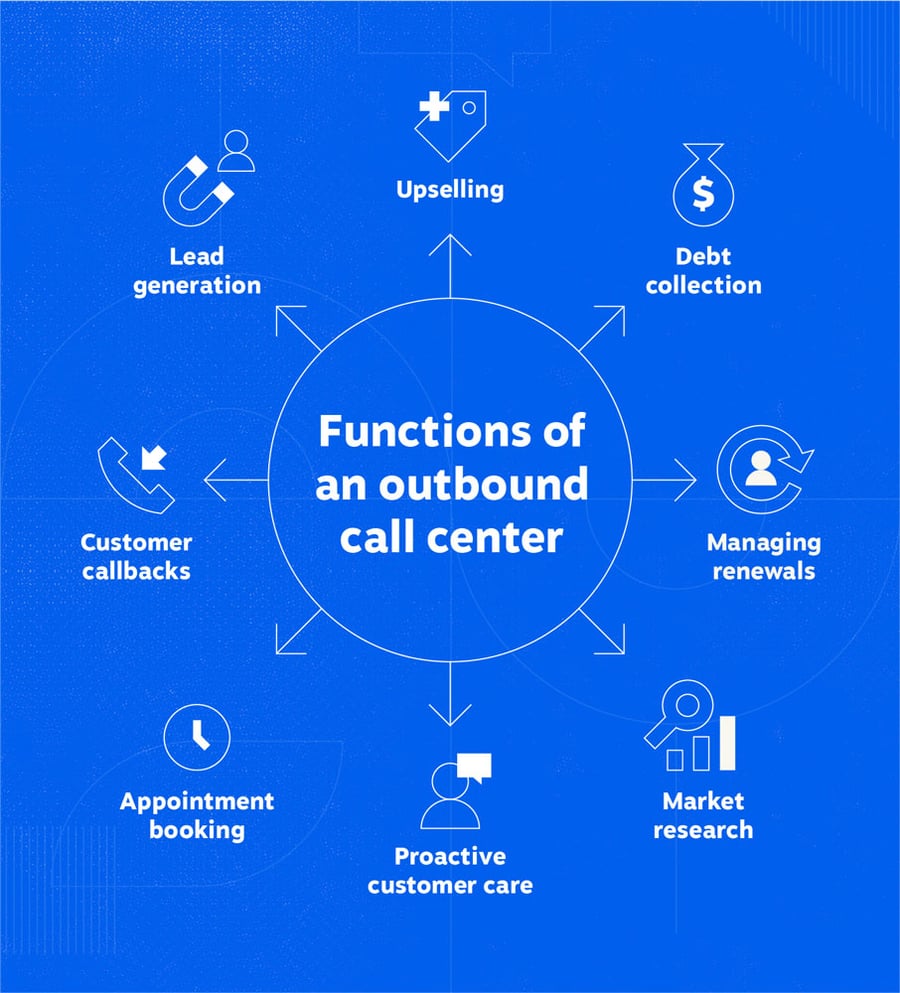
Here are some of the most common types of outbound call center campaigns:
1) Cold lead outreach
Cold lead campaigns focus on outbound sales calls to cold prospects or leads.
Cold leads are people who haven’t had any previous interaction with your business. They don’t know who you are, but they do meet specific criteria and are within your target market.
While the method for cold lead generation varies, most companies buy phone number lists of likely prospects — people in a specific geographical area, with a specific job title, or in a specific income bracket. These lists can also come from conferences and tradeshows.
Before you start this campaign, make sure that your cold leads are of high quality. If your product’s target market consists of homeowners, consider validating the data with public property records.
After all, calling renters will only waste time and money. Maintain these updated lead records within a sales pipeline CRM.
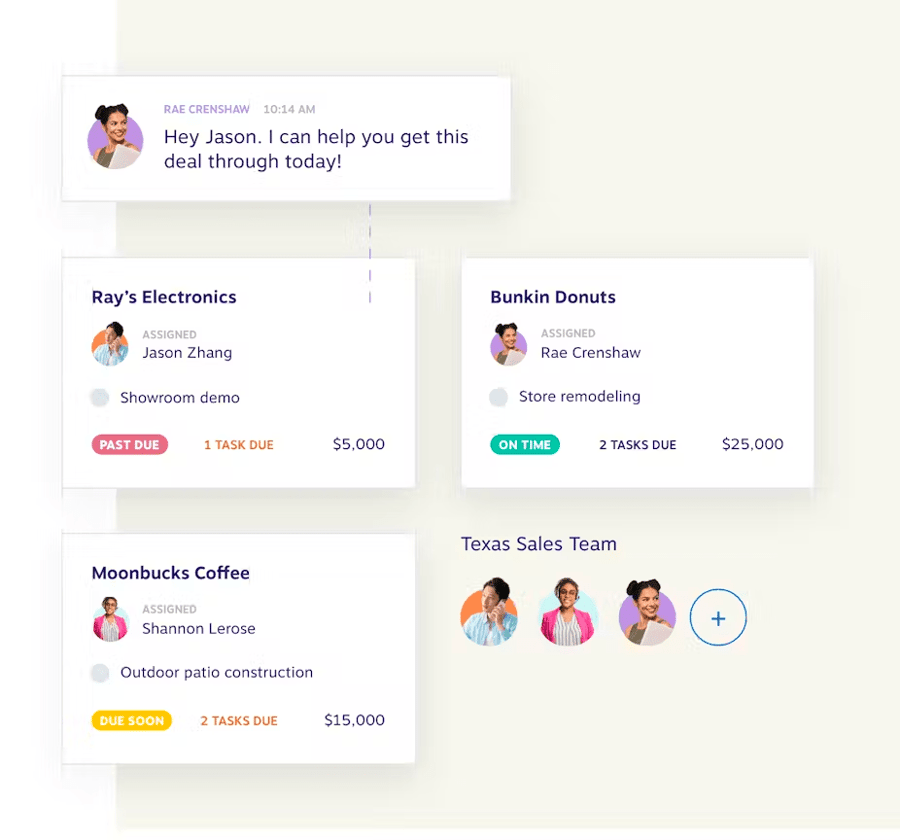
Also, make sure to have a well-trained sales team and a strong value proposition to be successful with cold calling.
Related: 5 Must-Attend Call Center Conferences in 2024–2025
2) Warm lead qualification
Warm lead campaigns qualify warm prospects for potential sales opportunities. People who have already interacted with your marketing campaigns are considered warm leads. They may have subscribed to your blog, downloaded a report, or requested a product demo.
As a sales conversation, they should be aware of your brand and solutions. They may have outdated information about your products and services, and their needs and budgets may have changed.
Review the lead’s interest and document new information they provide in your CRM so your sales professionals are set up for success.
Instead of trying to close the sale, focus your call center campaign on confirming their contact info and needs and identifying any potential obstacles.
3) Customer referrals
A customer referral campaign focuses on existing, satisfied customers.
The goal is not to sell but instead to gather an idea of your customer base’s impression of your products. Use the right customer satisfaction survey questions for more in-depth insight. This outbound campaign can reduce churn and escalate small issues before they harm the relationship.
A customer survey campaign can also be an opportunity to offer upgrades or upsell existing customers.
Customers can agents know that they aren’t happy with their current plan or product. Plan ahead with scripts and specific deals to pitch.
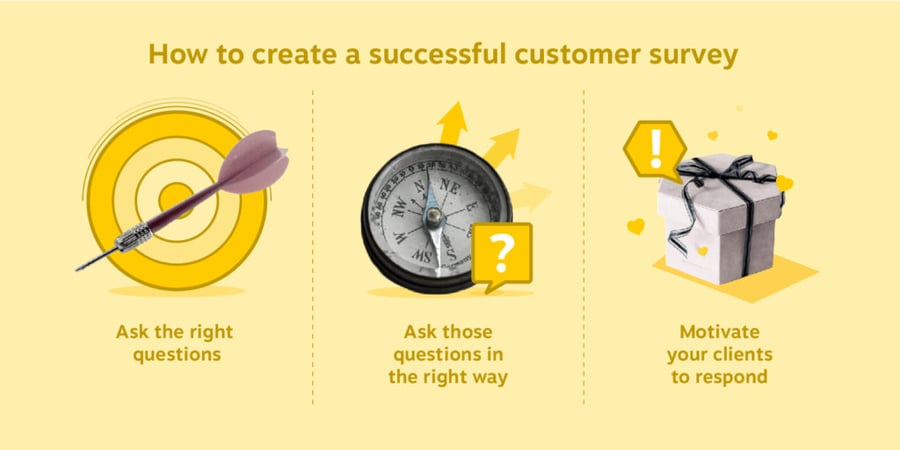
With the right strategy, you can generate more referrals with even more potential upsell opportunities.
4) Telemarketing
Telemarketing is one of the most common forms of outreach campaigns. It’s more sales-focused, involving selling products, generating leads, or setting up further sales interactions with potential customers.
Telemarketers reach via phone calls to educate, inform, persuade, or close sales with customers they have identified as targets for a given product or service.
These cold-calling efforts require carefully planned campaigns centered around lead lists, agent scripts, compliance procedures, and metrics tracking.
An example telemarketing campaign can be a real estate call center qualifying leads and promoting open house events. The call center agents work from pre-developed scripts to highlight amenities of listed properties the real estate agency represents.
The goals defined for the campaign may include making 20,000 dials over 2 weeks, setting 1,000 open house appointments, and capturing key details about prospective buyers.
The call center teams closely monitor metrics like call duration, appointments set, interested buyers identified, and ultimately sales closed from campaign-sourced leads.
Ongoing optimization and agent coaching help maximize results. The scalability of the call center model enables efficient lead generation at a relatively low cost per contact. When tightly focused and refined based on performance data, telemarketing is an effective way to build the sales pipeline.
Inbound Call Center Campaigns
Inbound call center campaigns involve agents answering calls from customers. These calls can be for customer service, technical support, and inbound sales.

5) Customer service campaigns
Customer service campaigns are all about resolving issues, improving the customer experience, and retaining customers.
To help your agents serve customers effectively, you can classify different queues based on key customer segments. For example, you could focus on:
- High-value customers: Customers who pay more or who have been with you for a long time. They’re more likely to share their candid feedback and be more understanding of wait times.
- New customers: Customers still learning about your product or service, so they may have more questions. It’s important to make a good impression so they stick with you.
- Customers with specific needs: Some customers may have specific needs, such as technical support or billing questions. You can create separate queues for them to help them quickly.
The goal behind this call center campaign is to provide superior customer service. To achieve this, focus on these call center metrics:
- Low wait times
- First-call resolution rates
- Average handle time
- Low abandon rates
- Customer satisfaction and retention
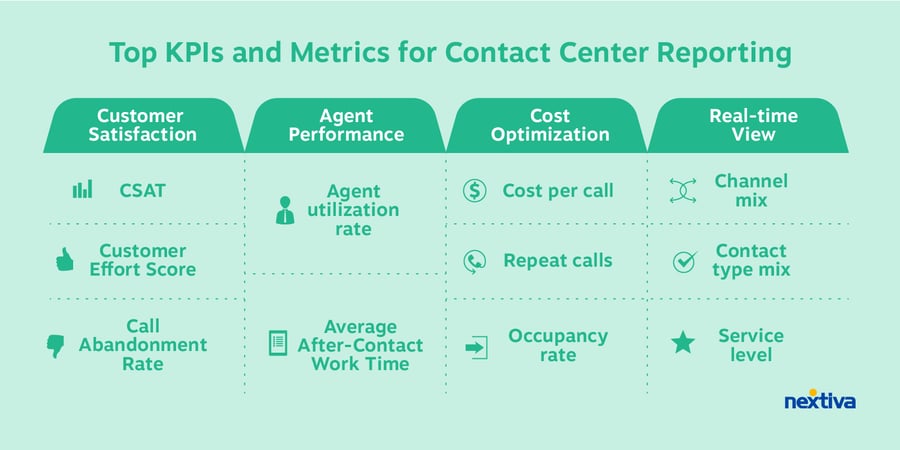
That’s the road to a happier customer. If you send automated surveys after each call, you can use these to measure your call center’s effectiveness.
Related: Call Center Outsourcing: A Go-To Resource for Outsourcing
6) Technical support campaigns
Technical support call centers assist and address issues with products and services to maintain customer satisfaction post-purchase.
Support campaigns leverage specialized agents, troubleshooting processes, and customer communication channels like phone, email, SMS, and chat to resolve technical problems users experience.
By laying the groundwork for efficient issue resolution, companies reduce customer frustration, improve brand loyalty, and minimize refunds or returns.
An example technical support campaign can be a consumer electronics company like Canon centralizing support for digital camera users in a call center.
Customers who purchase cameras are provided with a support phone number and hours of operation to call Canon representatives for assistance with setting up and connecting their cameras, using features and settings, downloading photos/videos, or to troubleshoot image quality or hardware issues.
By offering the right tech support, companies increase customer trust, driving loyalty, customer retention, and future purchases.
7) Inbound sales campaigns
Inbound call center campaigns focus on selling to interested buyers who call your company. Rather than cold outbound calling, inbound teams receive or respond to leads sourced from different marketing initiatives.
Trained agents build rapport on calls, strategically highlight product suites, and close deals initiated by curious prospect inquiries.
These calls could come from a variety of sources, such as radio or TV commercials, Pay-per-click (PPC) advertising from Google or other search engines using PPC advertising, or social media.
You need experienced sales agents operating the phones to achieve a healthy ROI. Plan an inbound sales campaign complete with scripts, special offers, and clear objectives. Consider additional training so your sales team can overcome objections and close the sale.
Inbound sales campaigns go hand in hand with most marketing campaigns. If you can’t close the interested buyers, the marketing and advertising dollars go to waste.
An example of a great inbound sales campaign would be a virtual telethon where a media blitz reaches people to pick up the phone to donate to a nonprofit.
Useful Call Center Software Features
Below, we’ve listed essential call center features that can help take your campaign to the next level.
Unlike typical internet phone service, call center features are specifically crafted for high-volume calling. As you scale, your call center software scales with you.
- Automatic Call Distributor (ACD) – Distributes calls to available agents. Smart call routing policies make sure every call reaches the right agent.
- Call Forwarding – Lets agents transfer calls with the click of a button. Seamless forwarding is vital if your call center relies on senior agents to close deals.
- Call Monitoring – Allows experienced agents to monitor trainee calls. The caller cannot hear the monitor during the call.
- Call Recording – Keeps a digital record of all phone conversations. It’s an excellent tool for training new staff and for quality control.
- Call Queue – Lets customers wait their turn, even if all agents are on calls. Even if all lines are busy, you don’t want to hit customers with the busy signal and force them to re-dial.
- Customer Relationship Management (CRM) software – A CRM keeps track of all customer interactions. A reliable sales pipeline CRM is essential to succeed with follow-up.
- Interactive Voice Response (IVR) – With IVR, callers can interact with your phone system through recordings and the dial pad. Set up your IVR to ensure incoming calls reach the right department.
To go a step further, try a contact center that adds more channels and features to a basic call center.

Best Practices To Create Call Center Campaigns
Creating a successful call center campaign requires planning, preparation, and a clear understanding of your objectives.
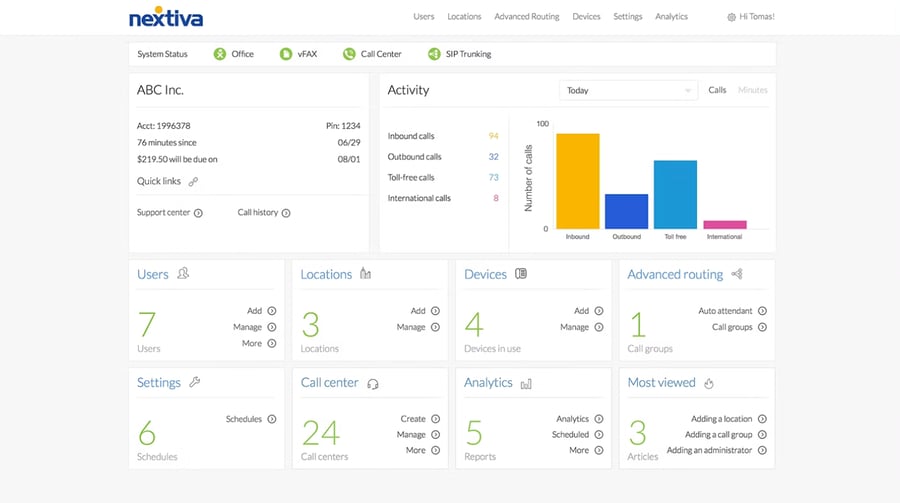
Here’s a step-by-step guide to help you get started:
- Define your campaign goals: Determine what you want to achieve with the campaign — generate leads, drive sales, book appointments, and handle incoming customer queries. This will shape your messaging and call scripts.
- Create contact lists: Segment your target customers and build call lists based on demographics, interests, and behaviors. Prioritize the most promising prospects.
- Develop compelling call scripts: Scope out questions, talking points, rebuttals, etc., to better prepare agents for objection handling. Include relevant offers and make sure scripts comply with data privacy regulations and telemarketing laws. Offer value and a clear call to action for the customer.
- Use the right technology: Choose a reliable dialer system, call center software, and CRM software for both outbound and inbound calls and tracking call volume in real time for workforce management.
- Set up tracking: Implement call recording systems, and track key call center metrics, lead quality scores, and conversion rates to track progress and measure success. Continuously analyze and optimize your campaign based on data insights.
- Human resources: Recruit, train, and motivate your call center agents. Train agents on product/service knowledge, procedures, objection handling, compliance rules, CRM systems, and more. Role-play scenarios to build confidence and address potential challenges. Ongoing training is crucial for agent performance and campaign success.
- Establish QA processes: Implement processes to monitor call quality – such as call barging, call recording, customer surveys, and scorecards to provide agents constructive feedback.
- Launch and iterate: Determine your objectives and make sure every staff member understands them. Audit leads and phone numbers to avoid wasting time, money, and effort. Don’t forget to track your call dispositions to make sure you’re meeting your goals on critical metrics. Finally, maintain a cadence of reporting campaign performance for clients and stakeholders.
The key is planning the campaign objectives, automations, and data integrations to create a positive customer experience that drives business results. But above choosing the right call center solution that lets you do all that.
Related: 5 Types of Call Centers: Which Is Right for Your Business?
Nextiva’s VoIP call center has all the features your contact center needs.
Use it to take it to the next level.
What Is the Best Solution To Run Call Center Campaigns?
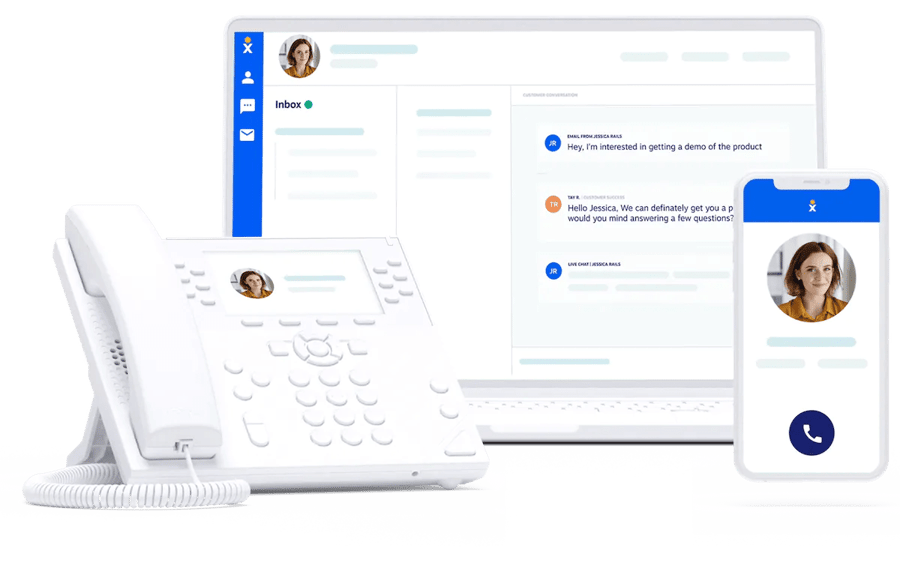
Don’t these call center campaigns inspire you to grow? No matter your layout, you can increase your performance. For a manager of a call center or a business leader, it can be stressful.
If your phone system is not easy to configure or add agents, you might be ready to overhaul it. An efficient call campaign has the right infrastructure.
You need strong inbound capabilities. You need even better outbound calling capabilities. Start by ditching slow and unreliable tools that slow your team down.
See How Call Center Software Made Phat Rides Wildly Successful

Related: What Is the Best Telemarketing Software for Outreach?

















 Customer Experience
Customer Experience 











